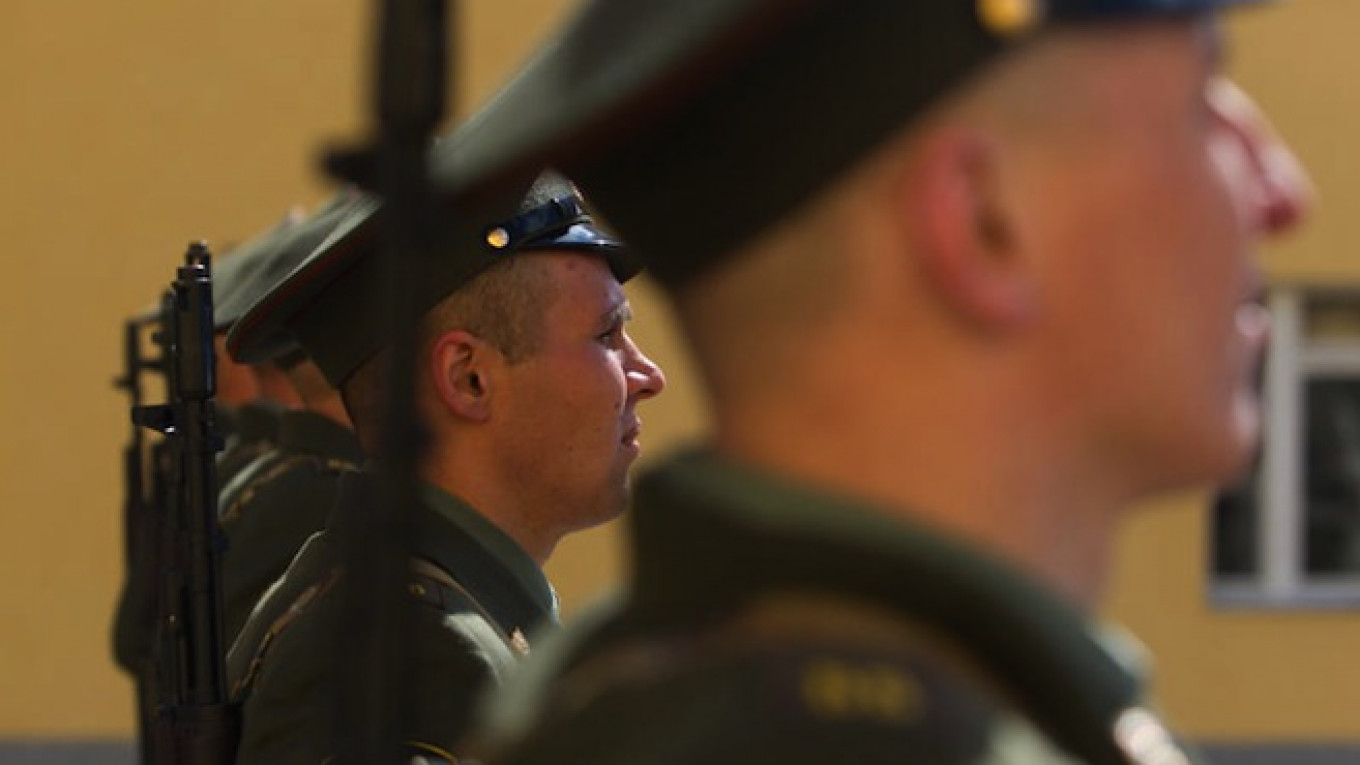The European Court of Human Rights on Wednesday ruled that Russian authorities failed to conduct a proper investigation into the suicide of a soldier and awarded his mother 30,000 euros ($41,500) in damages.
In April 2001, military conscript Andrei Tikhonov was found hanging in the toilet of his unit's canteen "with numerous bruises and abrasions to his body," the court's said.
An official domestic inquiry found that depression had driven Tikhonov to commit suicide and that the bruises were sustained during the hanging process, when his body hit the toilet walls during convulsions.
Tikhonov's mother, however, said that her son had suffered multiple injuries prior to his death and that the domestic authorities' attempts to explain their causes lacked credibility.
The court found that the authorities had not conducted a proper investigation into Tikhonov's death, but said that Russia had not breached article 2 of the European Convention on Human Rights, which protects the right to life.
See also:
A Message from The Moscow Times:
Dear readers,
We are facing unprecedented challenges. Russia's Prosecutor General's Office has designated The Moscow Times as an "undesirable" organization, criminalizing our work and putting our staff at risk of prosecution. This follows our earlier unjust labeling as a "foreign agent."
These actions are direct attempts to silence independent journalism in Russia. The authorities claim our work "discredits the decisions of the Russian leadership." We see things differently: we strive to provide accurate, unbiased reporting on Russia.
We, the journalists of The Moscow Times, refuse to be silenced. But to continue our work, we need your help.
Your support, no matter how small, makes a world of difference. If you can, please support us monthly starting from just $2. It's quick to set up, and every contribution makes a significant impact.
By supporting The Moscow Times, you're defending open, independent journalism in the face of repression. Thank you for standing with us.
Remind me later.






